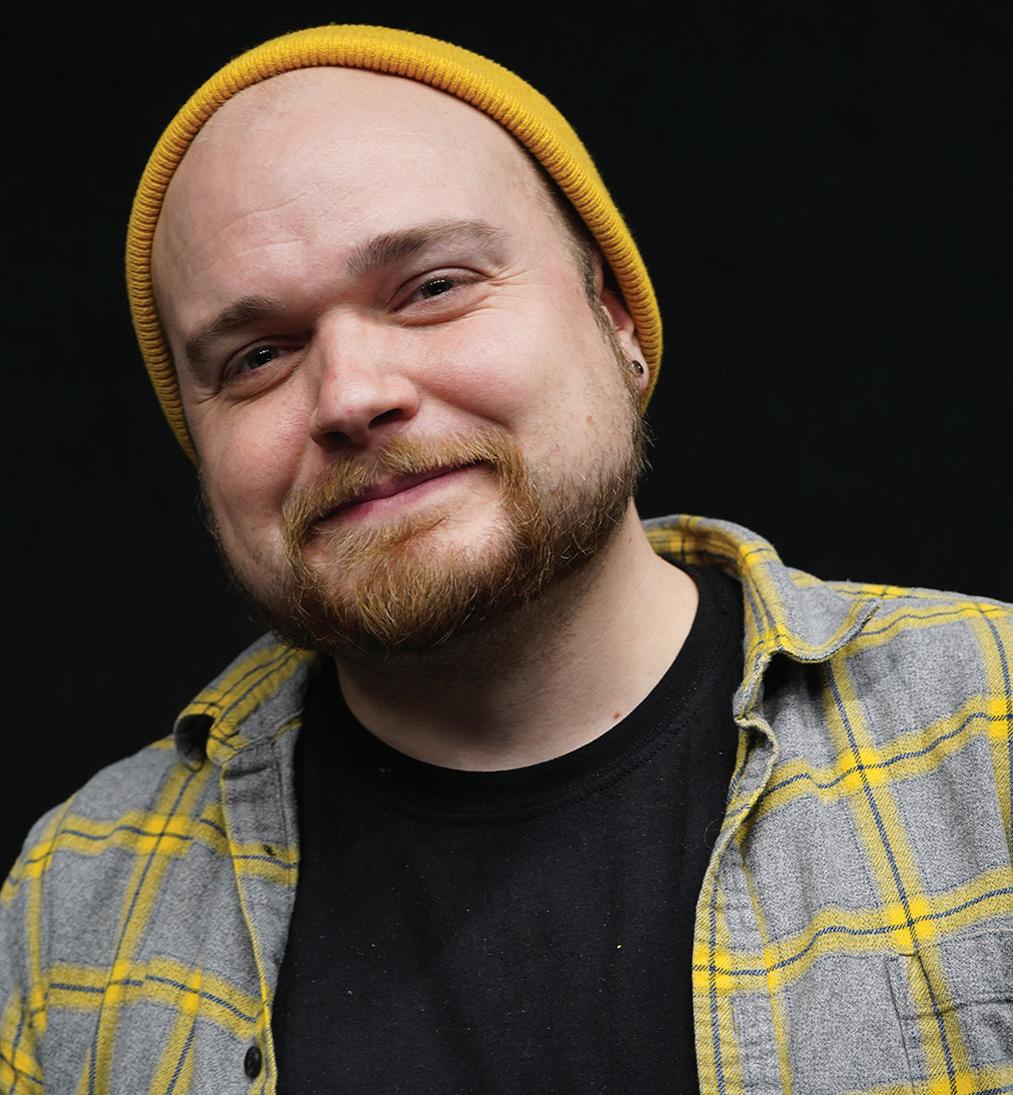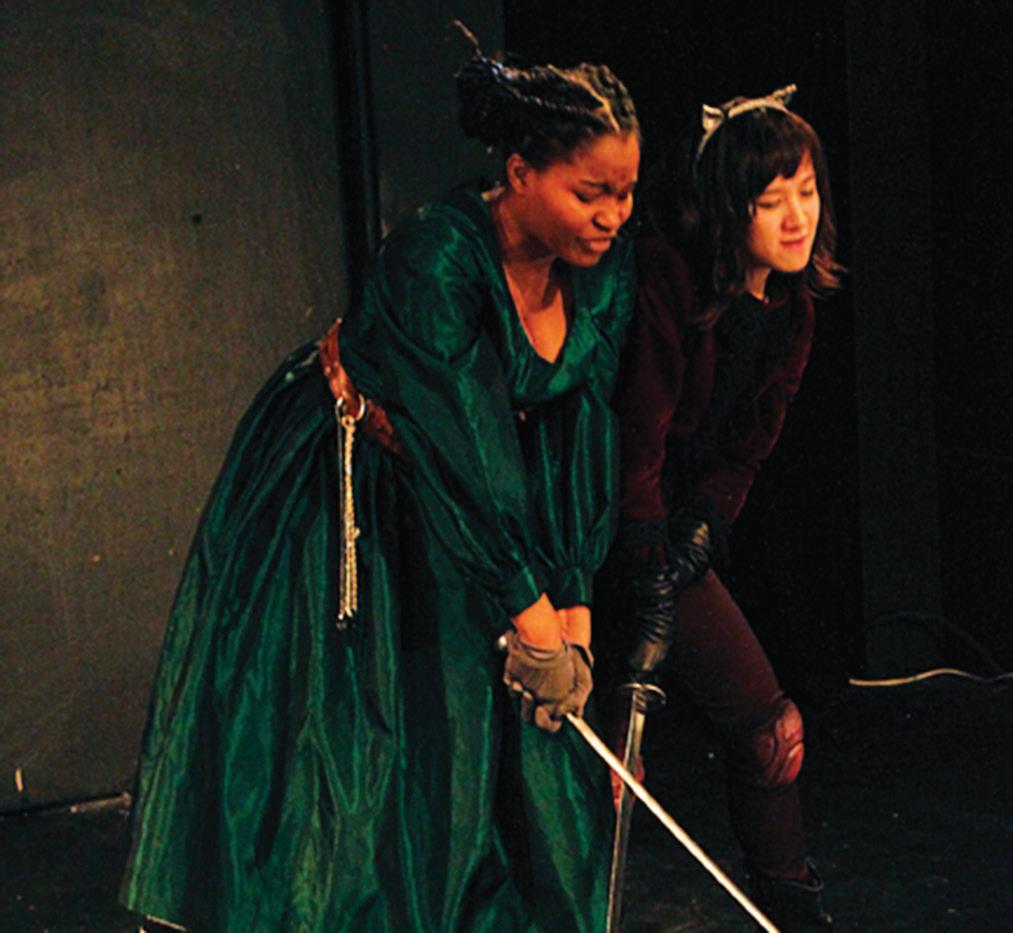
4 minute read
An Interview with the Director Todd Brian Backus
Edited for Length and Clarity by Rachel Ropella
Directing and Dramaturgy Apprentice Rachel Ropella sat down with director Todd Brian Backus to talk about his artistic journey with Portland Stage and building space for queer theatermakers.
Rachel Ropella (RR): You’ve been involved with Portland Stage in different roles, starting in 2011 within the apprentice program. What has your artistic journey looked like from then to now?
Todd Brian Backus (TBB): In undergrad, I got a degree in acting directing and graphic design. So when I first started at Portland Stage, I was actually the marketing apprentice, I took photos and did social media, but would also help with focus and strike. That was really important to me, because in my undergrad, my professors stressed the importance of directors understanding all of the different elements of the craft. It allowed me to think about how a theater continually produces work, which was really foundational for me. In 2014, I ran away to New York for a couple years and made work with a couple of friends from my apprentice year with our company,
PowerOut. In fact, Emily White who's doing costumes for The Cake, designed a bunch of shows for us. We all did like seven or eight shows together in about 15 months in New York. Around the time that we were finishing our last show, Emily Dickinson: Paranormal Investigator , which I wrote, the position for the literary manager at Portland Stage opened up. I applied, and now here I am!
RR: What’s something that’s excited you during the rehearsal process?
TBB: Our cast is incredible. We are a week in, and they are mostly off book and we are just playing and exploring in this space in a way that's really exciting to me. I am the sort of person that wants to give people a little structure, and then play to see what we can build together. I think that is the most fun part of the collaborative process—just entering this place where we're here to do a job but we’re also here to figure out how this thing works together.
RR: So much of this play is deeply grounded in realism, but there are times it becomes more fantastical as Della daydreams about The Big American Bake Off. How did you approach creating these ‘reality-breaking’ moments with designers?
TBB: I'm really excited about how we're using the light and sound in these moments to really heighten and change the world. I'm more interested in reflections and refractions of the world. And the thing that really sold me on The Cake, is in these heightened moments where the lights get a little weird and you know, the energy is a little heightened. We get to peek into Della’s psychological state, we get to see how she wrestles with a decision she just made and she's also questioning if the cake that she made is worthwhile. For me, getting to pair these two, metaphorical and literal elements at the same time, gets us to a place that's much more exciting.
RR: The Cake has these heightened moments of emotional intensity as well as intimacy, how do you approach making space for actors to be vulnerable in the rehearsal process? How do you make that space for yourself as well?
TBB: On the first day of rehearsal, I sat down with the cast and we talked about how this play is very funny, and also a lot of other things. This play deals with a lot of hard topics, particularly for people in the queer community. In rehearsal, we’re making space to talk about what it means to get rejected on coming out. What does it mean to have someone that you love disapprove of how you love? As someone who came out in high school, I haven't grappled with it in a long time, I have felt like I could very authentically be myself for a long time. And yet, in working on these scenes in this play, I have to figure out how do we make these moments feel raw for Jen and for the audience watching it, but also safe for Eileen, our actress portraying this character. With this show, we can't just run these scenes full throttle all the time. It's about making sure that it is a safe emotional space for both myself and everyone in the room with the level of intensity in this work.
RR: How have you approached working on a play that humanizes such a politically divisive conflict, especially now with some of the legislation we are seeing in our country?

TBB: I think what's really hard about doing plays about political topics is that if you really want to convince someone of anything, truly anything, the two of you need to see each other as people. In a worse version of this play, Della could be a one note, very ideological, and ‘bad’. I think what Bekah Brunstetter does so well is showing that this lady is trying hard, but she's not perfect, she's gonna mess up and so many people do. I think it's really hard that in our world right now, there's this feeling that people are either ideologically pure or disposable, and nothing in between. And I think that that is such a hard way to live because so many of us are contradictions of different things. It gives me hope that people who really sympathize with Della at the start of the play will also see what is possible on the other side of that conflict. To consider what it might mean, if we could all just love each other a little more, and have grace for one another. I think that's one of the things that drew me to this script is the grace. Macy has an incredible amount of grace, despite a lot of times where Della says just the wrong thing. My hope is that an audience watching this will leave the show, thinking like how can I bring a little more grace into my life, as in how can I offer kindness and understanding to people that I might not agree with right away? How can we find a way forward together?
RR: What one thing that you hope the audiences of Portland Stage take away from this production after watching The Cake?
TBB: I think truly for me, it's that grace. It's something that I've been reminded of, not just during this process, but at other times in my life. Like, “Hey, Todd, these people are actually coming at this from a different life experience and point of view and maybe you need to honor that a little bit. This might be hard for you, too and I can't just assume that you're like being a jerk to be a jerk." And I think if everyone can leave the play and think, “How can I be a little kinder and truly try to understand where someone else is coming from?” I think that if that happens, we'd have done our jobs right.










